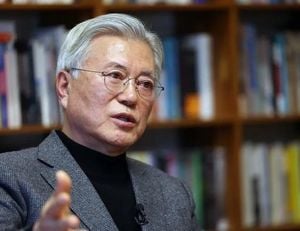On March 10, 2025, Belarusian President Alexander Lukashenko announced the appointment of Alexander Turchin as the new Prime Minister of the Republic of Belarus, marking a significant shift within the government. Turchin takes over from Roman Golovchenko, who has been elevated to the position of Chairman of the National Bank, emphasizing the government’s commitment to addressing the nation’s economic challenges.
Lukashenko expressed confidence in Turchin’s abilities, stating, "I want to publicly say, so there are no misunderstandings. You're not going there to rest." This assertion reflects the expectation for Turchin and his cabinet to prioritize economic improvement and engage closely with various aspects of governance. Turchin's experience is touted as pivotal for this transition, with Lukashenko highlighting the need for "experienced, strong people" to guide the administration during this term.
Born on July 2, 1975, Turchin has been entrenched within the Belarusian government for over a decade. His roles have spanned significant positions, including serving as the Chairman of the Minsk Regional Executive Committee and First Deputy Prime Minister. His extensive background suggests preparedness for the demands of his new role, especially during this delicate economic period.
President Lukashenko outlined his vision for governance, reinforcing the idea of enhancing people’s well-being and ensuring balanced national development. Turchin echoed this sentiment during his remarks, asserting, "Of course there are problems? Certainly there are. We will solve them. I think we will succeed and everything will be okay." His message reflects optimism and accountability as he steps onto the political stage at this pivotal moment for Belarus.
Turchin’s appointment is not without its background challenges, as he is one of the officials listed under sanctions imposed by the European Union, the United Kingdom, and several other nations following the contentious 2020 presidential elections. This event led to widespread protests and intense governmental repression, eleving concerns over governance and human rights within the nation.
Roman Golovchenko, now Chairman of the National Bank, served as Prime Minister since June 2020, directing policies during one of Belarus's most turbulent periods. His new role emphasizes the desire to deepen the engagement of the banking system with the national economy, as suggested by President Lukashenko. The president views this transition as necessary for re-evaluations of economic strategies and the integration of banking mechanisms to effectively bolster economic growth.
The broader narrative surrounding Turchin’s rise to power includes the backdrop of political repression post-2020, characterized by mass detentions and authoritarian crackdowns against dissent. The sanctions placed on various officials, including Turchin, indicate the complex international relationship Belarus maintains, often criticized for its handling of political opposition and civil rights.
Belarusian politics under Lukashenko has long been marked by centralized power and limited opposition. With the appointment of Turchin, there remains skepticism around the potential for substantial shifts toward democratic governance; many view this as merely another measure to maintain the status quo. Turchin's prior government roles speak to consistency rather than radical change, which may prove both comforting and concerning to different factions within and outside Belarus.
Despite these inherent challenges, Turchin’s administration begins with concrete goals. A primary focus will be economic recovery and stability, as promised to citizens. The government aims to balance macroeconomic factors to uplift living conditions and overall prosperity—a task universally recognized as monumental.
Going forward, Turchin's approach will be closely observed both domestically and internationally. The expectations surrounding his leadership entail not only proficient economic management but also navigation through heightened scrutiny by the global community. Achieving this balance may dictate the future political climate of Belarus in the coming years.
With the new leadership structure firmly set, all eyes are on Alexander Turchin. His success or failure will ascertain the direction of economic strategies and governance approaches within the nation. For Lukashenko's administration, Turchin embodies the hope for recovery from past grievances and lessons learned, paving the road to sustainable growth—if he can manage the complex terrain of Belarusian politics.



